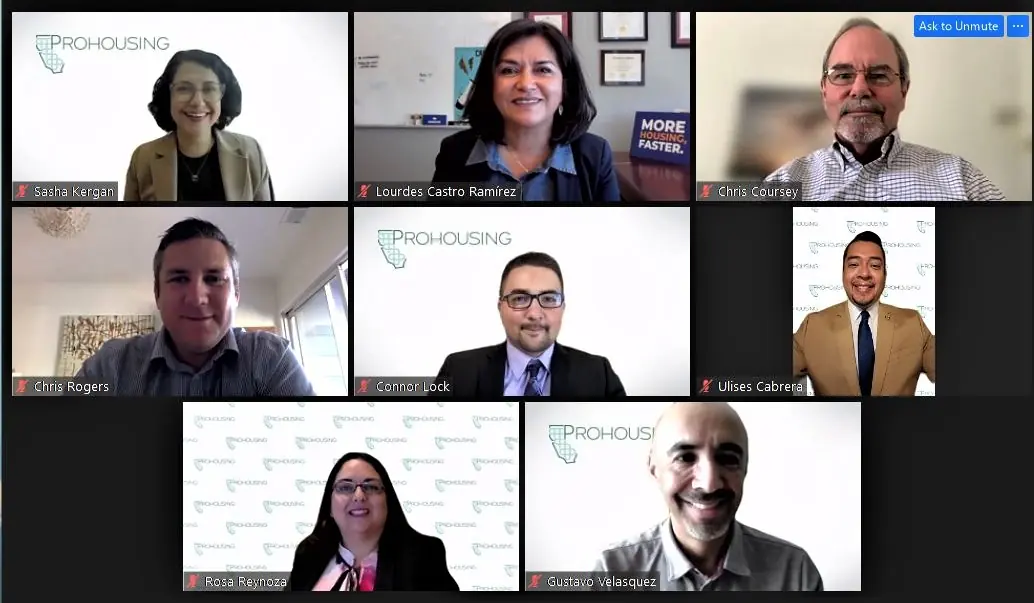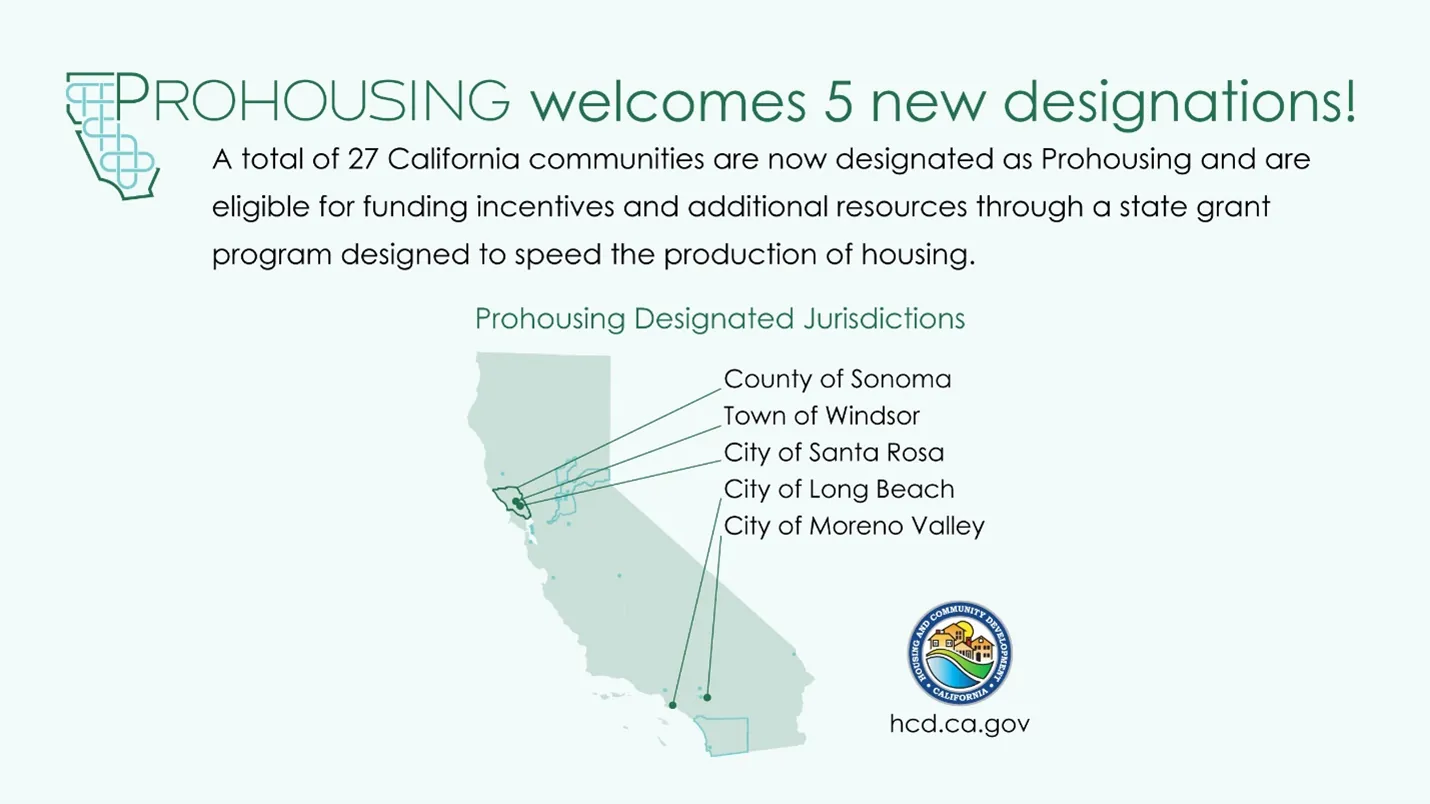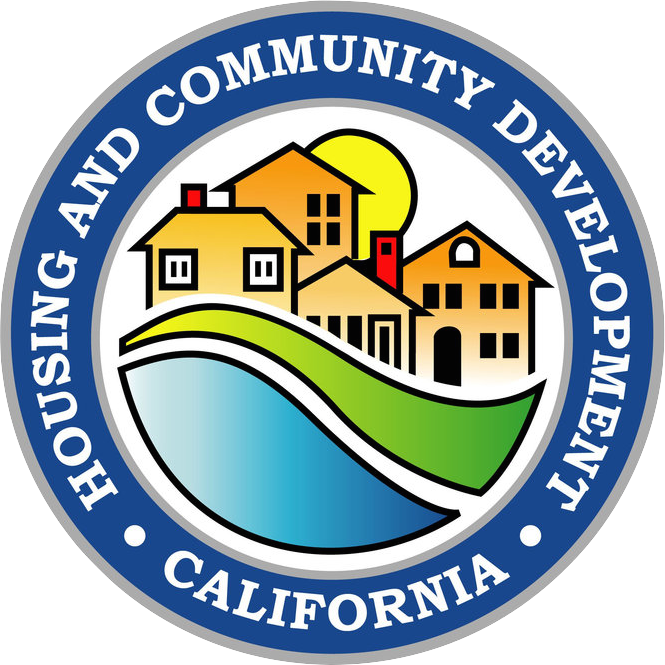California Department of Housing and Community Development Awards Prohousing Designation to Five New Jurisdictions
July 14, 2023
July 14, 2023

BCSH, HCD and prohousing jurisdictions.
Sacramento, CA
Governor Gavin Newsom today announced that Long Beach, Moreno Valley, Santa Rosa, Sonoma County, and the Town of Windsor have been designated as Prohousing communities. Through this designation, these jurisdictions are now eligible for funding incentives and additional resources through a state grant program designed to speed housing production. To date, a total of 27 California communities are now designated as Prohousing.
Why it matters: To meet the needs of Californians and address our state’s housing crisis, each local jurisdiction must take accountability to build their share of housing. To tackle this challenge, decades in the making, it will take a concerted effort between state and local leaders in partnership with nonprofits, advocates, and developers to enact Prohousing policies.
What Governor Newsom said: “Every city and county across California needs to work together to tackle the state’s housing crisis. Rather than evade their duties, these Prohousing communities are committed to rolling up their sleeves and building more housing, faster. By working together, we are putting the needs of Californians first and seeing to it that housing gets built faster throughout the state.”
The Prohousing Designation Program was established by the 2019-20 Budget Act, as part of a package of supports, incentives, and accountability measures to help California meet its goal of building 2.5 million homes by 2030, with at least one million of those homes affordable to people at lower income levels. The Prohousing Designation Program encourages jurisdictions to pass and implement policies that accelerate housing production, promote favorable zoning and land use, reduce construction and development costs, and provide financial subsidies.
Communities that earn the Prohousing Designation receive incentives such as additional points or other preferences in the scoring of competitive funding programs administered by the Department of Housing and Community Development (HCD), giving them an advantage over other jurisdictions.
Jurisdictions that earn the coveted Prohousing Designation have demonstrated a commitment to enacting Prohousing Policies to accelerate housing production and preserve affordable housing stock, and they have shown themselves to be partners with the state in combatting the housing crisis. These partners recognize that increasing the availability of housing statewide is critical to bettering quality of life for all Californians, and to ending homelessness.
“Expanding housing opportunities is critical for the social and economic well-being of working Californians, families with children, older adults, and people exiting homelessness,” said Business, Consumer Services and Housing Agency Secretary Lourdes Castro Ramírez. “Under Governor Newsom’s leadership, we have provided more tools and incentives than ever before for communities to design policies and programs to build more housing in the right places. Congratulations to the five jurisdictions announced today. They join 22 others that have done the hard work to remove barriers to housing so that homes can be created that are accessible to all Californians.”
“Creative efforts to enhance state and local partnerships are essential to meeting ambitious and necessary state housing goals,” said HCD Director Gustavo Velasquez. “We recognize today local governments that are breaking down barriers to affordable housing – and reward those good actors with incentives to enhance the work they are already doing.”

City of Long Beach
The city of Long Beach has demonstrated a sustained commitment to improving access and reducing barriers to new housing. First, as part of a phased rezoning effort, the City’s transitional Title 22 zoning code introduces ten mixed-use districts, introduces objective design and development standards, and eliminates density limits within designated areas. The city will soon fully transition to Title 22 zoning, ultimately applying its provisions to all areas outside the Coastal Zone while reducing parking requirements and adding two more multi-family zoning districts. Additionally, 100% affordable projects are now approved ministerially with no public hearing requirement, and the city has established covenant requirements for inclusionary or no-net-loss units as affordable in perpetuity. The city legalized existing unpermitted dwelling units in 2021 through an amnesty program. Numerous actions have been taken to streamline ADU/JADU approvals and the city has launched a pre-approved ADU program with contact information for design professionals provided.
City of Moreno Valley
The city of Moreno Valley has demonstrated a commitment to lowering costs and increasing construction of new and affordable housing. The city’s new 2040 General Plan Update has created new mixed-use zones that increase density and expand housing opportunities to meet its 6th Cycle regional housing needs allocation (RHNA) requirements. Additionally, the city now has a “Digital Plan Room” that provides a convenient way for customers to remotely, electronically submit planning documents through a standardized and streamlined process. The city has a new expedited plan review process by which it conducts standard expedited entitlement reviews, with first reviews completed within 18 business days. Second reviews are completed within 13 business days, and subsequent reviews are completed within seven business days. This process will help reduce development costs. Finally, the Moreno Valley Housing Authority was created in 2023 to address the city’s need for safe and sanitary affordable housing opportunities for its residents. The Housing Authority has established a special revenue fund restricted to affordable housing.
City of Santa Rosa
The City of Santa Rosa has enacted multiple changes to increase production and to improve access to affordable housing. First, the city’s density bonus program offers supplemental bonuses in excess of the state density bonus. Within the city’s Downtown Station Area Specific Plan and North Santa Rosa Station Area Specific Plan boundaries, residential projects may qualify for a supplemental density bonus up to 100% above the General Plan residential density limit based on land use designations, proximity to a major transit stop or school facility, or location in a General Plan Housing Opportunity Site. Second, the 6th Cycle Housing Element accounts for 150% of the City’s total RHNA. With the units under construction from June 30, 2022, and later (397 units), the 6th Cycle Housing Element accounts for 163% of the city’s remaining total RHNA. Further, the Santa Rosa Zoning Code now includes reduced parking requirements in two of the City’s Priority Development Areas and for the areas around the Sonoma-Marin Area Rail Transit stations, as well as allowances for shared and unbundled parking. Finally, the city has adopted a Greenway Plan that will preserve open space and provide housing in an underutilized area previously designated for expansion of Highway 12. This will result in new development potential of up to 47.2 acres of parks and recreational uses/open space and 244 multi-family housing units.
County of Sonoma
The County of Sonoma has enacted a wide variety of policies that will help increase housing supply and lower construction costs. For example, the County’s Cottage Housing ordinance allows up to three detached units in a single-family residential zone by right. Cottage housing developments are a type of infill development intended to provide small-scale, clustered housing units comparable in scale and intensity to single-family residential use. In September 2022, the County implemented a Digital Plan Room. This web-based plan review application allows customers to electronically submit plans and documents and provides staff the ability to collaboratively review plans online and identify issues or conditions required for approval. Plan reviewers can compare submitted revisions using tools such as overlay and side by side. This greatly improves communications between planning staff and customers while allowing for the timely management of issues and execution of permits. Finally, the County created a local housing trust fund – the County Fund for Housing (CFH) -- in 2003 with a matching grant from HCD. The CFH is intended to develop, preserve, and accelerate the pace of development of below market-rate housing for low-, very low-, and extremely low-income households. Ongoing funding comes from inclusionary and workforce housing in-lieu fees, a portion of the County’s transient occupancy tax revenues, and periodic additional contributions from the County General Fund. To date, the fund has loaned $41.85 million dollars.
Town of Windsor
The Town of Windsor has enacted multiple changes to increase housing supply and lower development barriers. For example, the Town is zoning for 217% of its total 6th Cycle RHNA, far beyond what is required. To help address the needs of families, the Town offers an additional density bonus or other economic incentives for residential projects that include a childcare center. Further, the Town has established a streamlined ministerial approval process for qualifying applications received under SB 35 and SB 330; Multifamily Objective Design Standards have been adopted to assist with SB35 and SB330 applications; and a revised process is now in place for both types of applications. Processing times are anticipated to improve with subsequent applications. Finally, the Town’s optional concept review process is a low-cost way to get feedback early in the building design process and streamline the formal development application stages, reducing development costs by identifying potential hurdles early without excessive design and engineering work. To reduce applicant barriers, the Town now has options for formal administrative review only, as well as a public workshop with the Planning Commission.

